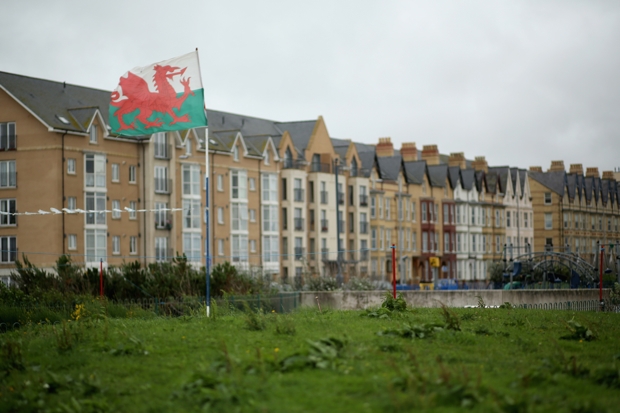Today, Labour in Wales celebrate 15 years in power. Despite all the evidence to the contrary, party members will congratulate themselves on what a fantastic job they’re doing. First Minister Carwyn Jones claims his administration represents a ‘living, breathing example of what the party can achieve in power’. Labour leader Ed Miliband agrees. He says ‘we have a great deal to learn from the things that Carwyn and his government are doing’. On housing, on health, on education, on people’s spending power – Labour certainly talks the talk. But in Wales, where they have had ample time to prove themselves, are they living up to Labour’s big promises? Let us consider a few examples:
Education
Wales has consistently dropped down the international education rankings over the last 15 years. In the latest round of results, Wales came 43rd out of 65 countries in maths attainment, 41st in reading and 36th in science – marking a massive fall of six places. Despite the government in Westminster protecting education spending in Wales, Labour in Wales have exercised their powers under devolution to spend that money elsewhere and have in fact cut funding to schools significantly.
Health
The same goes for health in Wales, where despite ring-fencing in London, Labour has decided to cut spending by 8%. In the face of increased spending on the NHS in England, and a £1bn Cancer Drugs Fund that is helping thousands obtain lifesaving treatment, the shadow health secretary says the coalition can’t be trusted with the NHS. Andy Burnham accuses the government of creating a health postcode lottery, while over in Wales patients across the entire country – let alone a postcode – are suffering the consequences of huge funding cuts. Labour have refused to set up a Cancer Drugs Fund that would give Welsh cancer patients equal access to life-extending treatments. Like Burnham, who refused to meet Mid Staffs patient campaigners when he was health secretary, the Labour government in Wales is turning a blind eye to similar concerns raised by families badly let down by their local trusts.
And there is more bad news for health under Welsh Labour: the urgent cancer treatment target has not been met since 2008, and they have failed to reduce their target waiting time from 26 weeks to 18 weeks, unlike the government in Westminster. The Welsh NHS payments system is also reportedly punishing Welsh citizens who live near the border and have to be treated in English hospitals – where, because of Welsh payment requirements, the 26-week waiting time will usually still apply. Hardly a glowing advertisement for the Labour party in power.
Housing
Housing has taken pole position in Miliband’s general election campaign. But the latest statistics on new home registrations show Wales is the only region in the UK where new home registrations are falling quarter on quarter. Even Miliband’s record is not great: when in government, Labour presided over the lowest levels of house-building for nearly 100 years. Miliband claims a new Labour government would build 200,000 homes a year by 2020. In Wales, however, Labour are making it difficult and more expensive to build homes, particularly after they passed legislation that means every new home built after 2016 must be fitted with a sprinkler system. This measure alone will add up to £13,000 to the cost of building a three-bedroom home in Wales. Add to this the Welsh government’s failure to deregulate the planning system, as has been done in England, and it is little wonder that Persimmon Homes have pulled out of several areas of the Welsh housing market.
Value for money
Economic incompetence in Wales is punishing hardworking Welsh people. As the saying goes ‘price is what you pay; value is what you get’. Under Welsh Labour, you pay more for less. The average B and D council tax in Wales has more than doubled to £1,276, and it is now official Labour policy to move to monthly bin collections. Contrast this with what the Conservatives and Liberal Democrats have done for the people of Wales: 155,000 people taken out of income tax altogether; a tax cut for 1.6 million people; the abolition of the fuel duty escalator meaning a saving of £7 for the average Welsh family every time they fill up their tank.
Has Wales become a snapshot of what the entire UK might look like under Miliband’s brand of Labour? Miliband would certainly like it to be, but only if we continue not to look too closely at the Welsh government’s ‘achievements’. Failing on housing; failing on education; failing on health; failing on value for money for hard-working people and their families. 15 years of marriage is aptly associated with a crystal gift; in this instance it offers us a crystal clear reason never to put our trust in Labour again.
David Jones is the Secretary of State for Wales






Comments